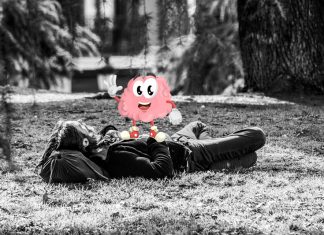
The other day, Daniel and I were chilling in our usual hangout, rewarding ourselves with some craft beer after a long week’s slog. During a lull in our chitchat, Daniel started telling me about the frustrations of his multiple projects. One thing led to another and we ended up discussing our mediums to overcome deadline stress. “Rubik’s Cube!” I mentioned.
“What?!” Daniel thought he misheard me since the bar was filled with raucous music and jangles of voices. “Yes, Rubik’s cube,” I responded.
Deadlines, Deadlines, DEADlines.
It’s advancing toward the cutoff point and you are not even close to finishing that important project for that important client. The panic spreads through your mind like ink on paper. The time drains like water in a tub. How am I going to get it all done? What if I don’t make it in time?
Contrary to the word itself, there is nothing really deadly about deadlines, both near and distant. They are just tools to force ourselves to commit to that particular task, seeing it through until it’s finished before moving on to another. Deadlines give us a concrete goal — what we need to do and when we need to accomplish it. But we don’t have to be driven crazy by them.
When deadline stress rises, I choke.
Sometimes when the stress of my tight deadlines rises beyond a certain point, the deadline panics kicks in and I sort of ‘choke’. Choking is suboptimal performance, not just poor — it is shoddy to what we can achieve and happens when we feel the pressure to get everything right. And a lot of questions start popping up in the mind. What if I don’t make it? Will it result in a loss of the deal? What should I do?
Thinking too much about what I am doing, or worrying about failing in general, or trying to control every aspect in an attempt to ensure success, will then lead to paralysis by analysis. My brain processing power, my working memory, my focus, all sail toward the destination of no return.
At this point, I will turn to my Rubik’s cube.
“If you are curious, you’ll find the puzzles around you. If you are determined, you will solve them.”
– Erno Rubik
Rubik’s Cube
Erno Rubik, a Hungarian professor of architecture, invented the Rubik’s cube in 1974. It took him a month to solve the cube for the first time. So in this classic cube, each of the six faces consists of 9 squares, and each face has one of six solid colors.
You scramble the cube and then twist it horizontally and vertically into getting the colors on the same side — either by using certain known algorithms or simply exploring on your own. Then you sit back and bask in a sense of accomplishment once you reach the solution. It actually comes with some benefits. It’s a good time-killer away from the glowing screens. It trains your reflexes, your hand-eye coordination: by executing an algorithm in the instance you see a case. And puzzles are fun, period!
I want to be exceptionally clear:
If you are forming a mental image of me masterfully and speedily flicking the Rubik’s cube like Collin Burns (a world-class champion), I am sorry for bursting your bubble. If I am skilled, my skill is marginally average at best. My point being: You don’t need to be deft or accomplished to play it. You just need a deal of good focus and determination. And some practice, obviously.
So how does the Rubik’s cube beat deadline stress?
In a nutshell, it’s just taking a break. Playing with the Rubik’s cube requires my focus. When my mind becomes crowded with negative thoughts, I am merely letting play occupy my mental real estate. There are many ways to take a break — some stretching exercises, some breathing or even a run. But these activities just don’t sufficiently center my mental effort on to them.
You may ask: “Isn’t solving a puzzle going to drain more mental energy? Or even create more stress?” Well, I don’t have to complete the Rubik’s cube. I can choose to solve partially: one side, just the corners, first two layers, or the whole thing. It’s my call. I am just playing.
Of course, it doesn’t mean that my troubles are swept away squeaky clean after the short break. My work, my deadlines still exist. But the difference is that my emotions are modulated, my control is regained, and I am a great deal more relaxed.
Less frenzy, better outcomes.
So now, I invite you, my dear friend: Come de-stress and solve that Rubik’s cube with me.







